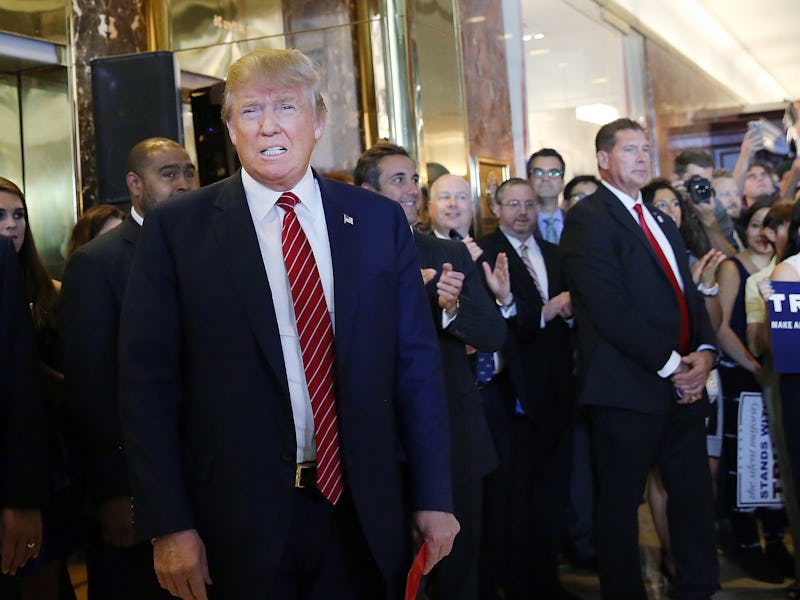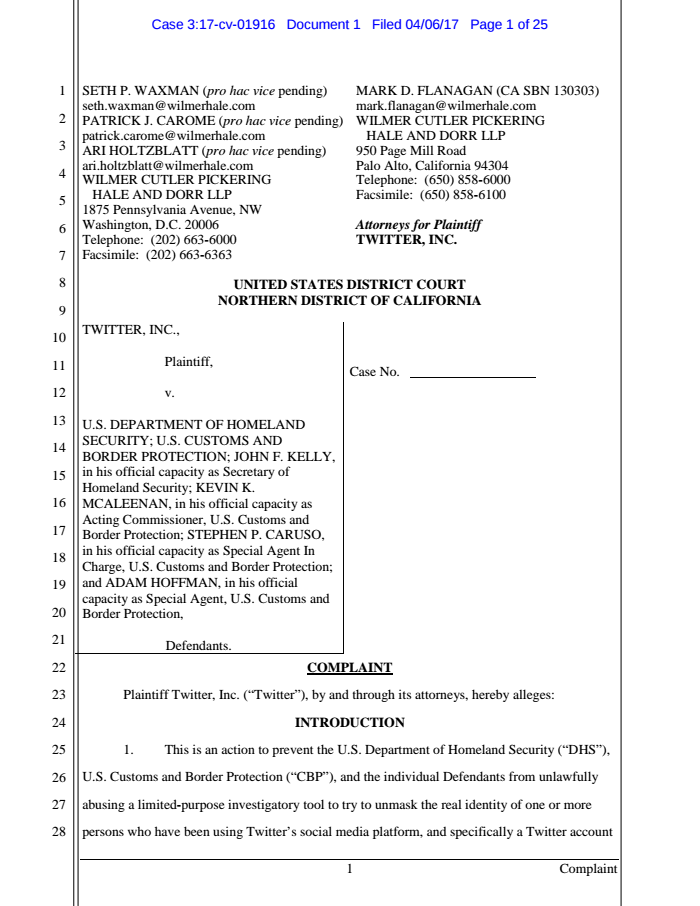Here's Why Twitter is Suing the Trump Administration
Twitter is standing up for privacy and freedom of speech.

On April 6, Twitter filed a lawsuit against the U.S. Department of Homeland Security (DHS) and U.S. Customs and Border Protection (CBP), as well as four officials from those departments, for attempting to force Twitter to reveal the identity of the user behind account @ALT_USCIS.
@ALT_USCIS is a “rogue” account for the United States Citizenship and Immigration Services, one of an array of alt-accounts, including @alt_labor, @blm_alt, and @RogueEPAstaff, created in early 2017 to voice dissent about the Trump administration. The movement was sparked by President Donald Trump’s gag orders on government scientists following his inauguration.
According to the lawsuit, the defendants faxed a summons to Twitter on March 14 ordering the website to “produce for inspection” “all records regarding the Twitter account @ALT_USCIS to include, Usernames, account login, phone numbers, mailing addresses, and I.P. addresses.”
The Trump administration didn’t want the public to know it had commanded Twitter to share the information. According to the lawsuit, the fax asked Twitter “not to disclose the existence of this summons for an indefinite period of time.”
It’s unclear what exactly DHS and CBP intended to do after identifying the creators of @ALT_USCIS. If the account users work within the administration, for example, their employment may have been jeopardized. The summons is a violation of the right to freedom of speech, as the lawsuit describes:
“[P]ermitting CBP to pierce the pseudonym of the @ALT_USCIS account would have a grave chilling effect on the speech of that account in particular and on the many other ‘alternative agency’ accounts that have been created to voice dissent to government policies. The Supreme Court has long recognized the extraordinary value of the kind of speech emanating from these accounts—pure political speech criticizing government policies and highlighting government waste and mismanagement. And the Court has likewise recognized that anonymity is often essential to fostering such political speech where, as here, the speaker could face retaliation or retribution if his or her real identity were linked to the speech.”
Twitter apparently gave the defendants 48 hours to withdraw the summons, and then took legal action when they failed to do so. The lawsuit requests that the Court nullify the summons, as well as give Twitter “its costs and reasonable attorney’s fees as appropriate” and “such other relief as this Court may deem just and proper.”

Assuming that Twitter wins the lawsuit — which seems likely, especially because it has a history of winning these freedom of speech legal battles — the @ALT_USCIS Twitter account might actually end up benefiting from the attention. At the time the case was filed, its followers hovered around the 32K mark. By the time this article was published a few hours later, that number had already jumped to 63.7K.
President Donald Trump’s tweets violate Twitter’s Terms of Use, and his summons are unconstitutional; Trump’s love for Twitter may be unrequited.